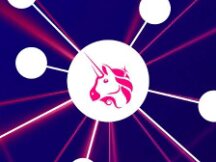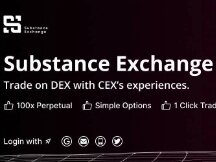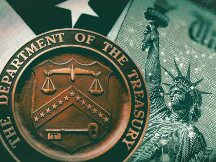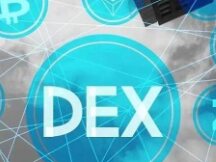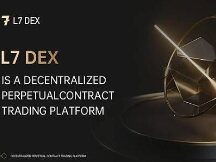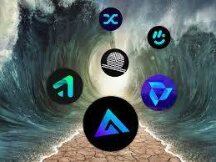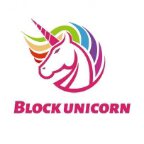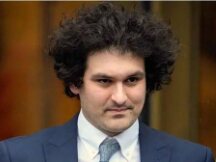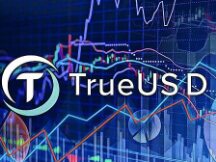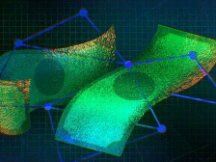Does Uniswap have to be an Oracle protocol?
In May of this year, Vitalik made an announcement on the UNIswap governance forum titled "UNI Must Build an Oracle Token". He believes oracles should take data off the chain, and UNI is a good place to offer an alternative to Chainlink for an expensive, latency tolerant use case.
The idea is interesting, but as I thought in a recent article, I was already thinking of Uniswap as an Oracle protocol. Ethereum, the largest DEX, provided data rates. UNI is already an Oracle token, and UNI DAO hasn't done much with it, at least so far.
History of Uniswap as Oracle
Uniswap has been an Oracle protocol since v1, but it was a very strict rule back then. Uniswap v1 is a set of ETH-ERC20 mining pools with a simple x * y = k pricing mechanism. You can query the value of ETH and its ERC20 tokens from each pool and have the oracle space value.
However, the Oracle v1 protocol has many shortcomings. First, everything is priced in ETH. To receive non-ETH quotes, such as BAT rates in USDC, you need to link the rates together (these are BAT-ETH and ETH-USDC).
Second, the price is an easy point in time (above all, more tragically, a point in a block) price of the place. “Unfortunately” this can be easily adjusted as the revenue is eliminated and large companies can dramatically change the price. I don't recommend relying on price to do sensitive work like deciding if the loan is on the floor.
v2 Improves the usability of Uniswap with Oracle. First, v2 accepts an ERC20-ERC20 pair. Second, manipulation is more difficult because each mining pool takes a snapshot of the seed value before the market or exchange rate changes. The final storage value (the value of the value equal to the value equal to the time since the last block in seconds) allows the user to calculate a one-time average value (TWAP) not at a simple price.
However, getting TWAP from pool v2 is not native. The integrator must keep the historical value of the running accumulator in a separate contract for calculation.
Uniswap v3 retains the advantages offered by v2, but also solves the above disadvantages by providing the option to store the process accumulator (by default only one value is stored), but anyone willing to pay for gas will not. can not count the number of tracking fee. ) is the cost up to 65,535 inspections, or up to 9 days.
Siv Oracle (Oracle)
Uniswap v3 has been used as one of the strings in many places. Many features called Oracle feature in Uniswap v3 in the contract, including:
Popsicle Finance (LP Profit Optimization Contract)
keep3r network (decentralized operational protocol)
Frax (Advantages of algorithms)
Lixir Financial (LP Director for Uniswap v3)
Rari Capital (founder of Fuse Loan Agreement)
Decentralized management of Babylon assets
Unipilot (LP production optimization contract)
Angular (stable contact protocol)

These Oracle calls are made in multiple pairs. As you can see in the figure below, USDC-WETH is the most profitable pair, but only accounts for 17% of Oracle calls. The inheritance that uses the oracle role has a long tail. Many of them are directly related to the above processes (eg FRAX, KP3R). However, Uniswap will be one of the most important assets (like the ENS and of course the ELON).

Uniswap DAO acts as the guardian of Oracle
The oracle function is used even if the parent does not have a record of the operation of the Uniswap oracles.

A pastor working with Oracle in Delphi received the floor and presented the responses to the candidates.
But where are the incentives to improve and maintain the Oracle experience? Using Oracle is not beneficial to current customers, LPs, or contract holders.
Contract prices are already the result of DAO cash flows in v2 and v3 (although currently unpaid).
It's worth considering the cost of using an oracle value. It requires a small change to the process, but it can be used with a lower cost of ETH per call, or by signing a contract for a group of people who are authorized to call Oracle.
Returning to this value, Uniswap DAO can become the "guardian of the oracle". What does this really mean? DAOs can:
The role of the "Russian liquidity provider".
The value of trust provides financial support for profitable lakes
Provides data and research on Oracle performance
Better data from Oracle uses best practices
By "end financial service providers" we mean that DAOs can develop automated strategies or select a leader LP to provide some of the revenue information for critical information and insufficient water lakes. This allows you to prevent attacks and counterattacks that affect multiple blocks that affect withdrawal or balance in the pool.
Limitations of current Uniswap Oracles
This discussion would be considered incomplete without acknowledging some of the limitations of using Uniswap oracles that exist today.
With AMM the simple cost (not TWAP) is depressing, but TWAP makes the data less up to date (by definition, it adapts more slowly to exchange transactions). You encountered a problem selecting the time for the TWAP test.
The shorter the time, the easier the TWAP should work.
Longer term, the TWAP exchange rate slower for exchange rates.
Take the example of a loan agreement. If the stock price drops rapidly and TWAP does not affect the shortage of jobs 30 minutes after the downtrend begins, the stock price will be lower, which could lead to an immediate loss. Try this in an underwater position due to the Contract. .
However, the appeal of Uniswap oracles lies in their important role. While there is no additional responsibility that DAO can provide, they will continue to operate normally if there is support from business partners.
Going back to Vitalik reports, it would be interesting to explore how DAO adds new, worthless data, using the current TWAP model as part of their Oracle solution.

Scan QR code with WeChat

